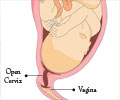
‘Safe prescribing practices should be followed strictly in pregnancy including confirming the correct diagnosis and choosing the safest medication at the lowest dose.’
Read More..Tweet it Now
Researchers looked at data on 441 949 pregnancies from the Quebec Pregnancy Cohort between 1998 and 2015, linking to filled prescriptions listed in the Quebec Prescription Drug Insurance database. They found that taking oral fluconazole was linked to adverse outcomes. Read More..
"Our study shows that taking any dose of oral fluconazole while pregnant may be associated with a higher chance of miscarriage," says Dr. Anick Bérard, Université de Montréal, Montréal, Quebec. "Taking higher doses of fluconazole over 150 mg in early pregnancy may be linked to a higher chance of a newborn with a heart defect."
The study is consistent with other studies, although more research is needed as the study sizes are still small.
In a related commentary http://www.cmaj.ca/lookup/doi/10.1503/cmaj.190079, Drs. Vanessa Paquette and Chelsea Elwood, British Columbia Women's Hospital and Health Centre, Vancouver, BC, write, "The study re-emphasizes safe prescribing practices in pregnancy, which include confirming the correct diagnosis and then choosing the safest medication with the largest body of data in pregnancy at the lowest appropriate doses.
Advertisement











